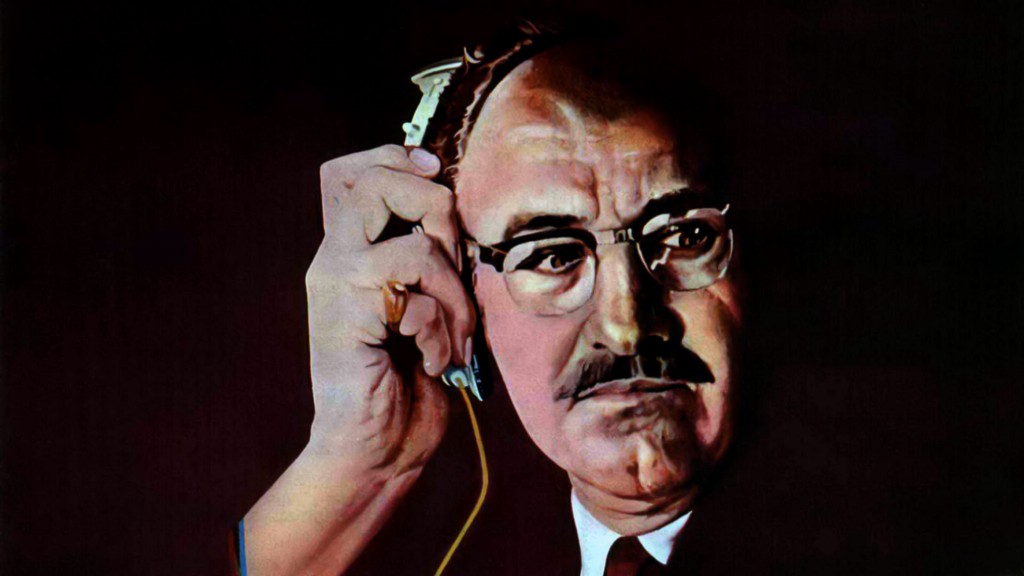The Witness, Turned Informant

Zelda doesn’t really speak yet. But her babbles have the inflection and the silhouette of words. You can hear it in her voice, and the words I hear are, “Any day now.” We have waited for this since she was born. We speak to her constantly, we tell her we love her, we talk to her about her surroundings, her meals, her activities. When she is away from me for a few hours, I ask her how her day has been. “What did you do today, Zelda?” And soon, it is clear, she is going to begin to make sense.
When I was pregnant, I voraciously read journalist Pamela Druckerman’s Bringing Up Bébé: One American Mother Discovers the Wisdom of French Parenting. In addition to being full of techniques and tidbits which I have found both easy to apply and indispensable, Druckerman introduced me to the famous French pediatrician and psychoanalyst Françoise Dolto, whose work is sadly not very well-known in American parenting. Druckerman writes that Dolto “thought that babies begin eavesdropping on adult conversations — and intuiting the problems and conflicts swirling around them — from the womb,” and “insisted that the content” of what you say — even to a small baby — “matters tremendously.”
As a woman who was pregnant for the first time, this all made so much sense to me. But then, Zelda was born. And she didn’t seem to be in tune with me or what I was saying. Sometimes, it seemed relentlessly exhausting, calmly explaining to a wailing baby, “Time to go to sleep now, darling, I’ll see you in the morning.” How many times have I felt like a complete ass, just running through the motions of a conversation with a tiny little barbarian? Many.
In fact, her comprehension skills for a while seemed to decrease as her mental and physical faculties obviously increased. As she began to display wants of her own — to pick up this or throw that, to go over here or over there, I sometimes felt, and still feel, like Dolto was making a joke about all this, the idea that babies have reason. In practice, of course, this meant that my husband and I, in the early days, often seemed to carry on as if it were still just the two of us. Our conversations with the baby in the room were much the same as without. She didn’t seem to understand, so why bother editing out that “fuck”? Zelda couldn’t tell on us if we were talking about a friend behind their backs (not that we ever would, of course).
In the past month or so, though, it seems that old Dolto might have known a thing or two after all, and that this effort of making conversation, of telling my daughter the truth and pretending we were on something like equal footing in the rhetoric department, might not be for nothing. She listens now. She’s picked up the slightly annoying habit of yelling loudly whenever I am having a conversation with someone and she clearly wasn’t involved in it. “Talk to me! Don’t ignore me,” she seems to demand. And, more recently, when I speak on the phone in the morning, and I see her, from the corner of my eye, playing with something on the floor, she’s looking at me, and her expressions change with the intonation of my voice. She’s not spying exactly, because there she is, right in the room with me, and I’m speaking just as if she weren’t there, or as if whatever she overhears is fair game. And so it is.
The prospect of Zelda speaking and listening with comprehension is so thrilling now that it is on the cusp of actually happening that I get excited, almost shaking, just at the thought of it. I’ve spent nearly a year locked in a very intense, personal relationship with a person who is basically mute. She doesn’t have opinions, or at least, she doesn’t voice them. I suspect they are in her head alright, but I’ve yet to hear one, and so I look forward to that day very much.
It’s also terrifying. I have lived with my husband for nearly a decade. We had a long-established rhythm of how we deal with one another, and how we communicate. The only witnesses to our day-to-day private lives have been two Chihuahuas. Until now. What will Zelda think of us? Will she like us? Will she fit into the groove of our tiny family unit, or will she be a crazy third wheel? Am I the third wheel? Is Josh? Are we prepared to hear her opinion about what’s for dinner? We’ve imagined her speaking to us in largely positive terms — she’ll tell me she loves me, or that she wants to go to the park. But how will it feel when she tells me “no”? What about when she inevitably disagrees?
Zelda is a distinct person with her own ideas — that much has been clear since even before she was born. I don’t like raisins; she loves them. She likes listening to Katy Perry far more than I would prefer. She is naturally outgoing; I am a loner. But it’s been pretty easy to manage all that with her basically unable to communicate. What’s next is that Zelda becomes a full member of the family. Until now, it’s like she’s been auditing us and we her. We adore her. I want to cuddle her and smother her with affection and to teach her about all of the wonderful things in the world. And I can’t wait to hear what she has to say about it.
